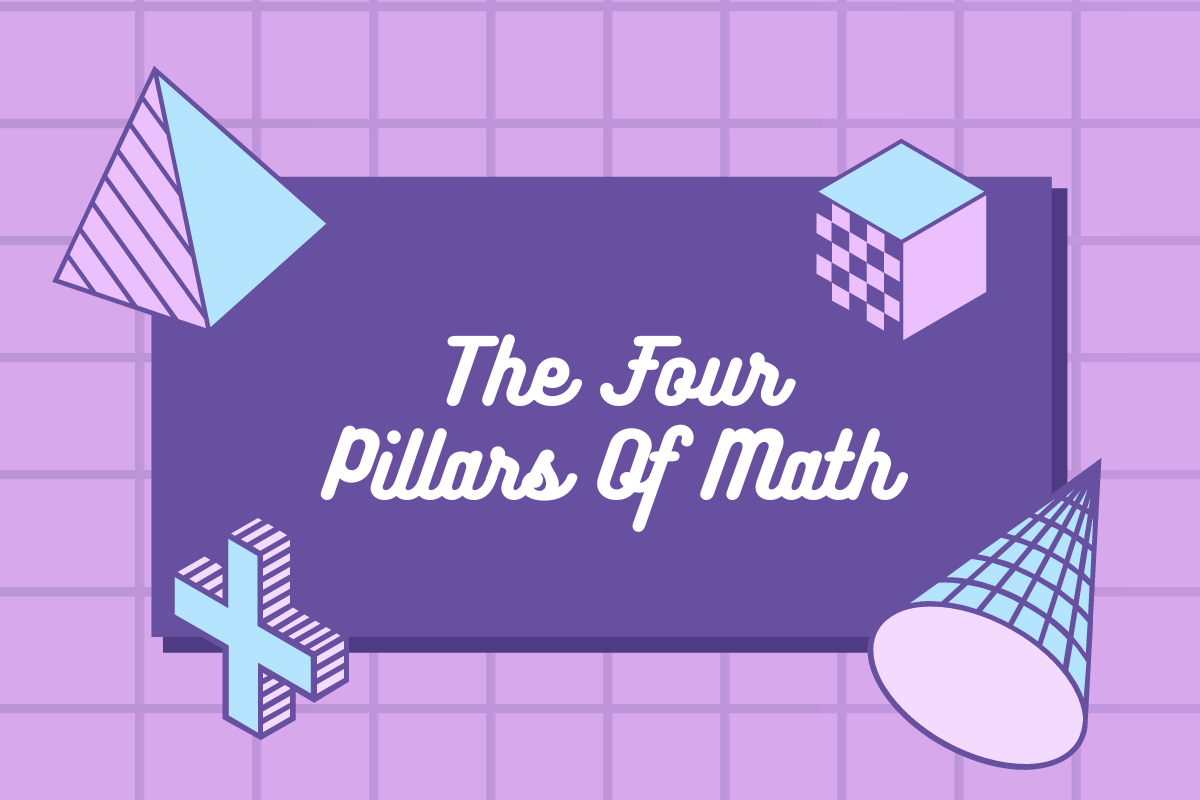The Four Pillars of Math are four concepts that are essential for students to understand in order to be successful in math. These pillars are: number sense, operational sense, proportional reasoning, and algebraic reasoning. By mastering these four fundamental concepts, students will be able to solve any problem they encounter in math. In addition, the four pillars of math provide a strong foundation for students to build upon as they move on to more advanced concepts.
The Foundation Of Our Program
At Dropkick Math Academy, the foundation of our math tutoring program focuses on the four pillars of math. These four pillars are essential building blocks for understanding higher-level math concepts. We focus on one or more of these pillars throughout our program in each module. For example, in our first module, Operations, Whole Numbers, and Pirates, we focus heavily on developing a conceptual understanding of both number and operational sense. Without a strong understanding of these operations, it would be impossible to move on to more complex topics like algebra. However, we also touch on the other three pillars in this module. For instance, we use proportional reasoning to explore place value. By the end of the module, students have a well-rounded foundation in arithmetic and are prepared to move on to more advanced modules.
The Four Pillars Of Math
Let’s take a closer look at each of the four pillars:
Number Sense
Number sense is understanding the quantity represented by a number. It is not the same as numeracy, which is the ability to do calculations. Number sense develops gradually. For example, a baby starts by recognizing that they see one person or two people. By the time they start school, they can count up to 20 or more. They learn what numbers mean in terms of amounts and quantities. This knowledge forms the foundation for learning more complex math concepts later on.
Fractions are an excellent example of a concept that builds on number sense. In order to understand fractions, students need to be able to visualize the quantity represented by a number. For example, if there are four pieces of candy and I eat two of them, then I have eaten half of the candy. Fractions are a way of representing numbers that are not whole numbers, and understanding fractions requires a strong foundation in number sense.
Operational Sense
Operational sense is a critical math concept that refers to a child’s ability to make sense of addition, subtraction, multiplication, and division and use them in problem-solving situations. When a child is able to develop a strong understanding of the operations, they can recognize the relationships among them and develop systems for computing numbers. This understanding helps to form the basis for the four pillars of math.
Operational sense is not just about being able to do the computations but about understanding when and how to use them. For example, a child who knows that addition can be used to find out how many objects are in a group but does not understand that it can also be used to put together two groups of objects has not yet developed operational sense. Operational sense is a critical foundation for success in math, and children who develop a strong understanding of the operations are well on their way to becoming math problem-solvers.
Proportional Reasoning
Proportional reasoning is a unifying theme in mathematics and is often considered the foundation of abstract mathematical understanding. All four pillars connect to proportional reasoning. For example, in whole numbers, students learn about place value which is based on 10s. In decimals, place value is based on 10s with an added number after the decimal point. In fractions, there are different parts of a whole, and students use visual representations to help understand the relationships between those parts. Lastly, in percentages, there are hundredths and relationships are represented out of 100.
By making connections to prior learning, students see that proportional reasoning is everywhere in mathematics! Proportional reasoning is not just a process but rather it’s a way of looking at the world and solving problems. In essence, proportional reasoning is the consideration of numbers in relative terms compared to absolute terms.
Algebraic Reasoning
Patterns are all around us. They can be found in the seasons, the way leaves grow on a tree, and the numbers we use every day. Understanding patterns is an essential mathematical skill that helps us to make sense of the world around us.
Algebraic reasoning is a way of thinking that uses mathematics to solve problems and understand relationships. It is an essential skill that is introduced in the early years of learning and continues to play an increasingly important role through grades 4 to 9.
Algebraic reasoning can be used to solve problems in a variety of ways, including by using algebraic equations, graphing, and creating tables and charts. It is a powerful tool that can help us to understand complex ideas and make predictions about the future. By understanding algebraic reasoning, we can better understand the world around us and our place within it.
Learning Skills
The approach used in Dropkick Math Academy teaches children certain skills along with the four pillars to set them up for success in their future education. These include:
Concepts – Concepts are the building blocks of math. If students don’t understand the basic concepts, they’ll struggle to progress. That’s why we focus on teaching concepts in a way that is clear and easy to understand. We want students to really grasp the material so they can build on it later.
Fluency – Fluency is about being able to do math accurately. It’s important for students to be able to recall math facts and equations quickly so they can focus on solving problems. We use a variety of techniques to help students improve their fluency, including games and practice with real-world applications.
Problem-solving – Problem-solving is an essential skill for all students, not just those interested in math or science. Breaking down a problem and finding a solution is a valuable life skill that will serve students well no matter what path they choose. We encourage students to approach problem-solving with confidence and to persevere when they find themselves stuck.





